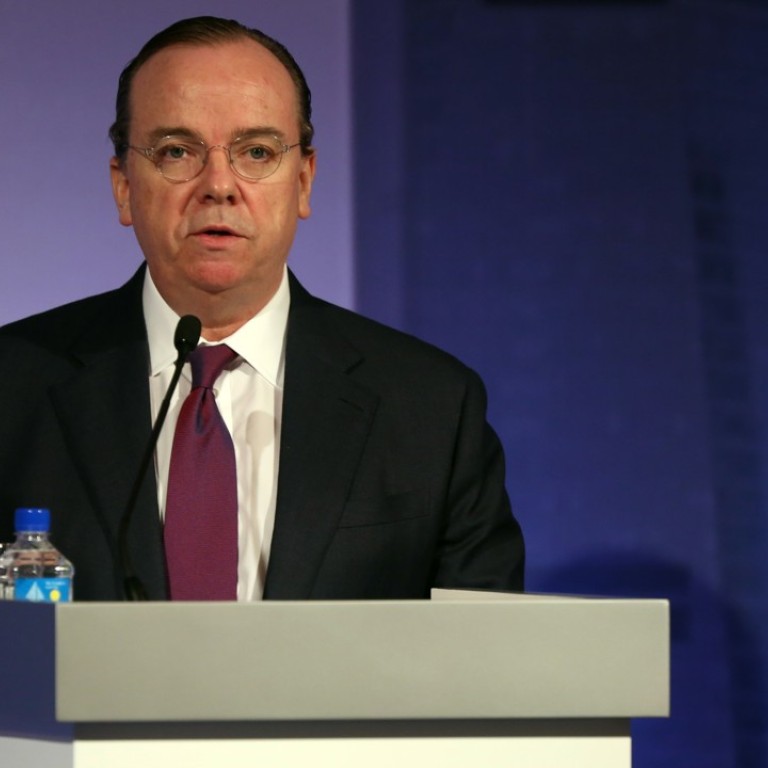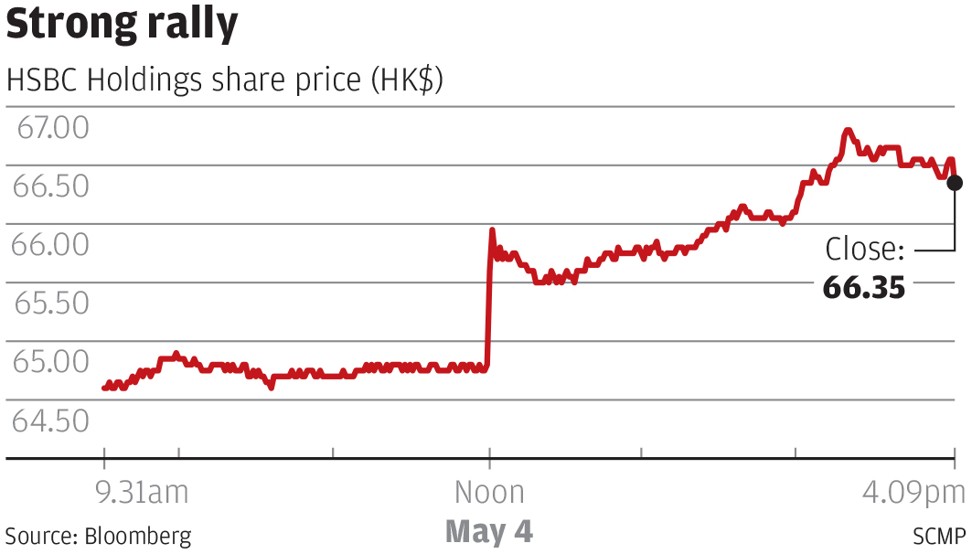
New | HSBC shares jump after first-quarter revenue beats forecasts
Loan growth in Pearl River Delta as well as in Hong Kong, but bank still waiting for Hibor uptick
Shares in HSBC Holdings jumped by the most in almost five months in Hong Kong after the world’s sixth largest bank by assets beat forecasts with stronger-than-expected revenue in the first quarter.
Pre-tax profit rose 12 per cent after adjustments to US$5.9 billion in the three months to March due to growing revenues in Asia. Adjusted revenue for the quarter increased 2 per cent to US$12.8 billion, better than the US$12.6 billion forecast in a Bloomberg survey of five analysts.

Mortgages in the delta grew 53 per cent during the quarter while insurance sales increased 17 per cent, group finance director Iain Mackay said.
“This is not even close to where we want to be” in the area, Mackay said during a conference call after the results were announced. The strong results were signs that the bank’s investment in the region was starting to have an effect, he added.
“We expect the stock will react positively as upgrades for consensus earnings per share are likely,” said Morgan Stanley’s banking analyst Anil Agarwal, who recommends investors put an “overweight” position on the stock.
The bank’s shares jumped 2 per cent immediately after earnings were announced, ending the day 3 per cent higher at HK$66.35 in Hong Kong, the biggest daily advance since December 7 last year.
Without adjustments, HSBC’s pre-tax profit fell 19 per cent, which group chief executive Stuart Gulliver said was a result of “a change in the accounting treatment of the fair value” on the bank’s debt and because last year’s first-quarter profit included operating results of the Brazil business sold in July 2016.
The better-than-expected figures mark a turnaround after HSBC’s poor performance at the end of last year. In the last three months of 2016, the bank reported a loss of US$3.4 billion and missed expectations even after adjustments.
One of the reasons for the improved performance was the move in December 2016 by the US Federal Reserve to raise interest rates, which increased HSBC’s margins.
In the coming months, the bank would further benefit from any subsequent increases in rates, Mackay said.
HSBC is one of the world’s most rate-dependent banks, owing to its large pool of deposits, which enables it to more effectively turn them into loans and investments for which it can get better returns.
Hong Kong, where the bank was founded in 1865, had bucked the global trend as the Hong Kong interbank offered rate had lagged the London overnight bank rates due to yuan deposits moving into Hong Kong, Mackay said.
This reduces banks’ need to seek additional funding from the market, keeping rates low.
“We are hoping that Hibor rises to follow US dollar Libor [London interbank offered rate], but it is very difficult to predict when that will happen,” Mackay said.
HSBC also beat expectations on its capital, with its common equity tier one capital ratio – a key measure of its capital provision – rising to 14.3 per cent, well above the bank’s target range of 12 to 13 per cent.
Speaking to analysts and the media, neither Gulliver nor Mackay would be drawn on whether shareholders could expect another buy-back this year on top of the US$3.5 billion of shares the bank has bought back since August 2016, but analysts thought it was likely.
“With a strong capital position, we won’t be surprised if the bank announces another share buy-back in the second half,” Sanford C. Bernstein analyst Chirantan Barua said in a note.

